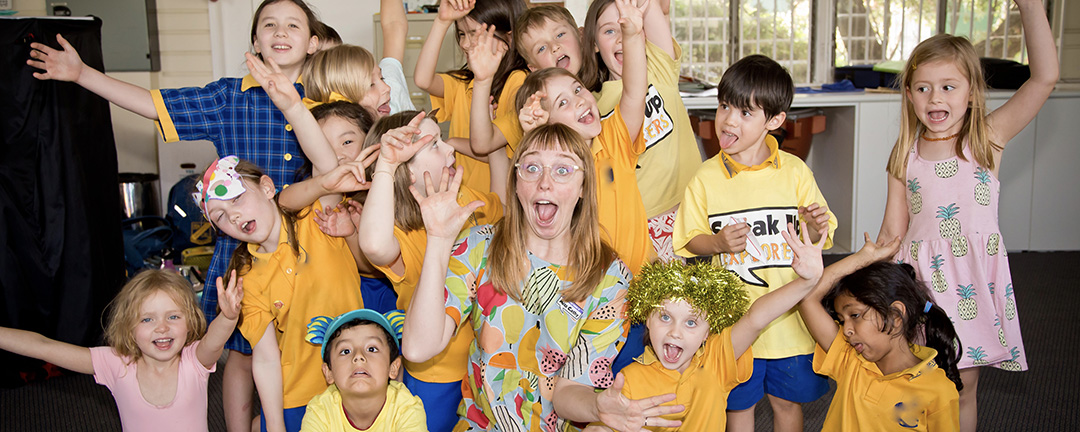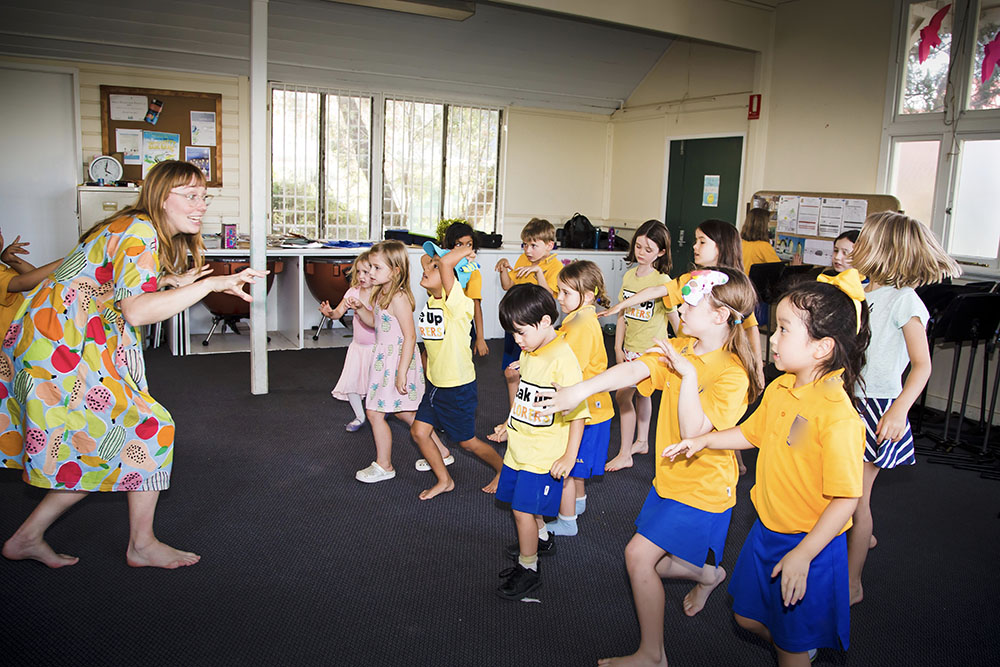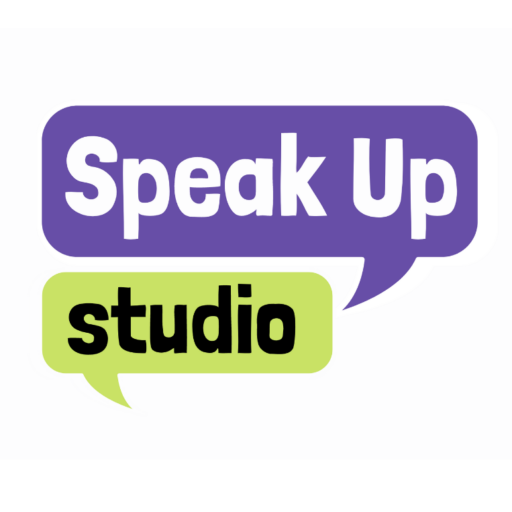
04 Sep The power of silly
by Miss Cathy Clur
The most common concern I hear from new Speak Up Studio parents is, “My child is full of confidence at home, but as soon as she is in front of people she doesn’t know, she becomes quiet and shy.”
Parents hope that by participating in drama their child will learn to “let go”. I agree, that drama is very good at helping kids be themselves. It helps them show the same confidence they have at home (where they’re likely to be singing and dancing, and putting on concerts for their family) as when they are in unfamiliar situations. Situations like speaking in public or when they meet new people.
Working with school-age children, I have seen how learning drama complements what kids learn at school, continuing their journey on becoming well-rounded and happy human beings.
School is usually the first place that kids experience being all on their own. It is where they begin to put together their identity – working out what they like and dislike, who they will be friends with, and so on. School is very different from home, and some children worry about showing too much of their feelings at school, in case it’s not the right thing to say or show.
At school, children begin to learn self-discipline. At six-years-old, they are told to sit still, raise their hand and are generally expected to act like grown ups. Even though they’re not! In the school classroom, kids can’t be silly.
This is where drama comes in. Drama classes provide a place for kids to be silly without getting into trouble or feeling as though they have done something wrong. I often tell my students, “The sillier the better. The louder the better. Louder than that! Sillier! Look at me being silly. Look I’m an elephant! Can you be sillier than this?” At first they look at me like I’m crazy, but as soon as they realise that it really is okay, and that we’re all going to laugh together, the results are pretty spectacular.

Like at home, drama provides a place for kids to show off their identity in a light-hearted way. In drama we perform for each other and applaud each other. We express ourselves by telling people our favourite things, we listen to other people talk about their favourite things, we work out that different people like different things, and that that’s okay.
Here are some other things we do in drama to create silliness:
– Pretend to be weird and wonderful creatures;
– Imagine we are in exotic locations;
– Make silly noises;
– Make silly faces;
– Tell jokes;
– Do bad magic tricks that we nearly always get wrong;
– Dress up;
– Giggle;
– Work as a team;
– And do all sorts of other silly things that might be disruptive in an ordinary classroom!
Kids can let their hair down.
I’ve been a drama teacher for eight years, and I’ve experienced the Power of Silly over and over again. A child who joins a Speak Up class at the beginning of the term, who refuses to say anything for the first lesson, will gradually start to see that it’s okay to be silly, to make mistakes, to laugh at himself and with others. By the end of the term, the same child will perform confidently for a group of mums and dads, he will thank his teacher and go out into the world with the knowledge that he is different. All thanks to the Power of Silly.
Find a drama class where your child can be a little silly.
Check out these games for parents when you are too tired to play.

